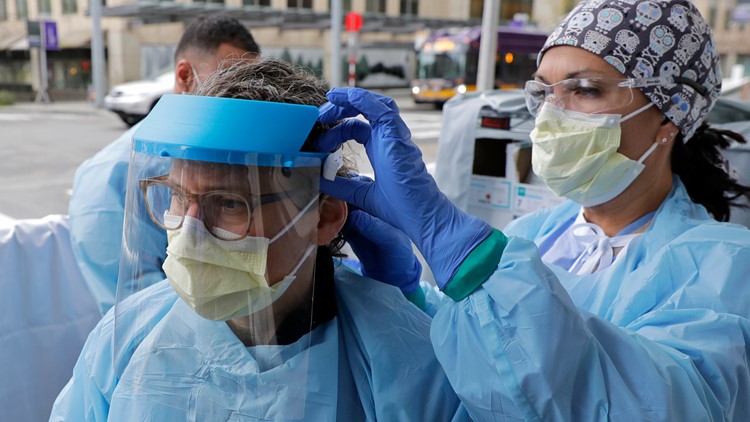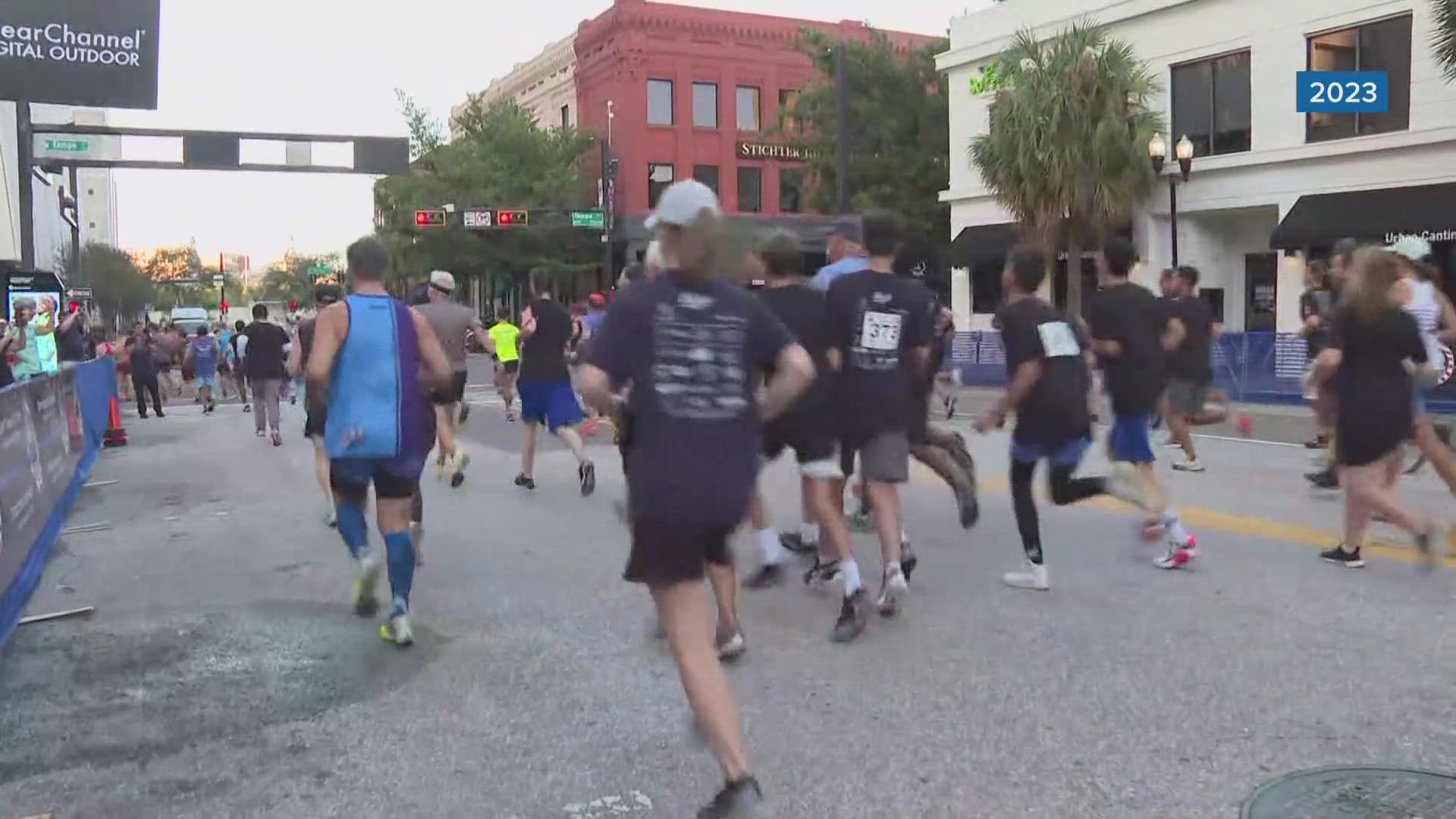ST. PETERSBURG, Fla. — The CDC has revised guidelines that should allow more people to return to work faster if they are employed in essential industries, such as first responders, medical personnel and even grocery store and construction workers.
The new guidelines are designed to head off potential personnel shortages which could occur if large numbers of employees, who might otherwise be asymptomatic, are sidelined while awaiting for COVID-19 test results.
Fortunately, many law-enforcement and emergency agencies around the Tampa Bay area are not currently experiencing personnel level stresses due to COVID-19.
When the virus first started to take hold, precautions forced many agencies to sideline employees for up to 14 days because of a lack of testing. Thanks to faster test results, testing availability and prioritization of testing first responders, many are getting back to work quicker.
The St. Petersburg Police Department, for example, cites a recent case where a person being arrested spit in the face of an officer and then claimed to have COVID-19.
In the past, that officer would have had to wait at least two weeks to exhibit symptoms -- or not -- before returning to work. In this case, the police department says it was able to test the man arrested and the police officer within two days.
Both tests came back negative. The man has been charged. The police officer is back at work.
At Tampa Fire Rescue, the department is similarly confident that it will not have to employ the CDC revised guidelines in order to keep enough essential workers on the job to meet the public demand.
Assistant Chief Mark Bogush says the department wants the public to be upfront and honest about whether they are exhibiting symptoms of the disease, knowing that emergency personnel will absolutely still respond no matter what.
“Please don’t allow yourself to think that you can’t be upfront and honest when you dial that number 911, and give the information the dispatchers are asking for. It just allows those firefighters to take proper precautions. We will still be there,” Bogush said.
Bogush says he can’t predict the future, but at this point, he is confident the safety precautions and procedures the department has put in place is enabling them to maintain a safe work environment and an appropriate level of personnel to provide service.
If at some point in the future the department saw a dramatic increase in the number of potential exposures, the chief says the revised CDC guidelines might help them to put people back to work faster. But, so far, that hasn’t been necessary.
“In the early days of this before the testing became more prevalent, we did have people that were returning from trips on cruise ships, people that were returning from trips overseas, and those people didn’t have to sit on the sideline for a couple of weeks,” Bogush said. “We weren’t able to get them tested as easily."
But that sort of wait is now far rarer, he said.
“We get exposures from individuals on the street. We get firefighters tested -- or even those individuals -- tested to find out if they’re contagious. And those tests can come back sometimes within hours. So, if they go onto a quarantine list, generally today, they’re not on for very long," he said.
The revised CDC guidelines recommend that workers in essential job positions could return to work after having been exposed to the coronavirus, but should:
- Take temperature before work
- Wear a face mask at all times
- Practice social distancing as work duties permit
- Leave work if you become sick
- Don’t share headsets or objects used near the face
- Don’t congregate in a break room or other crowded places
- Coronavirus models are improving. Does that mean we can get back to 'normal' sooner?
- Time to apply: St. Pete is accepting applications for its 'Fighting Chance Fund' to help small businesses survive the pandemic
- Thousands of acres of Florida fruits, veggies left to rot amid coronavirus pandemic
- These are the 4 legal documents you'll want ready during the coronavirus outbreak
- President Trump jokes about a pardon for 'Tiger King' Joe Exotic: 'I'll take a look'
- When will your federal stimulus check arrive?
- Hotlines, websites offer the latest on COVID-19
FREE 10NEWS APP:
►Stay In the Know! Sign up now for the Brightside Blend Newsletter





